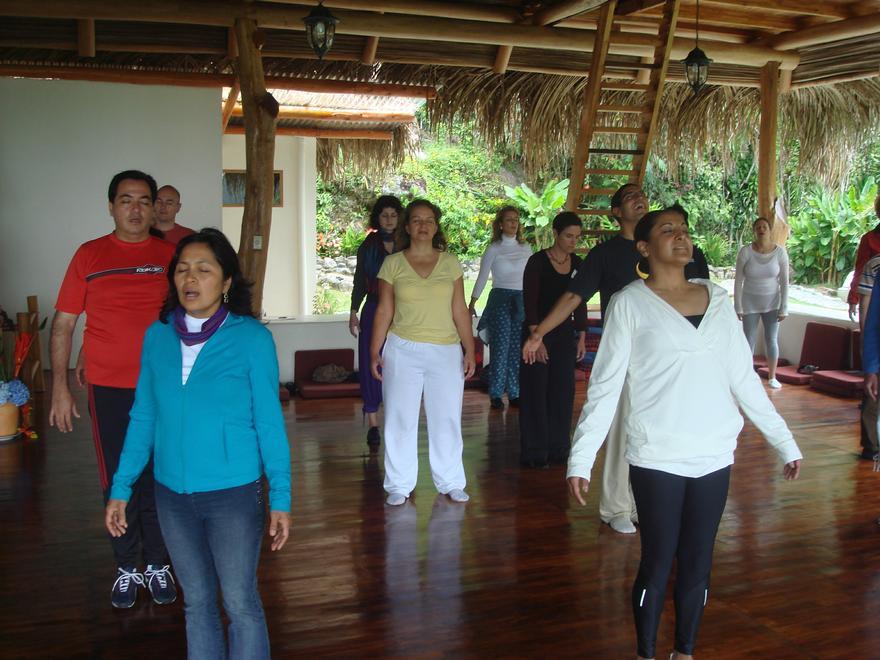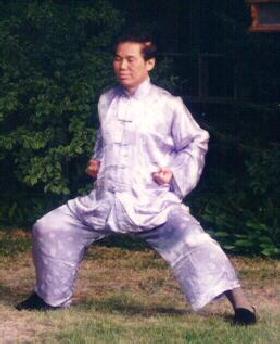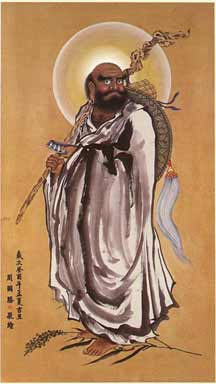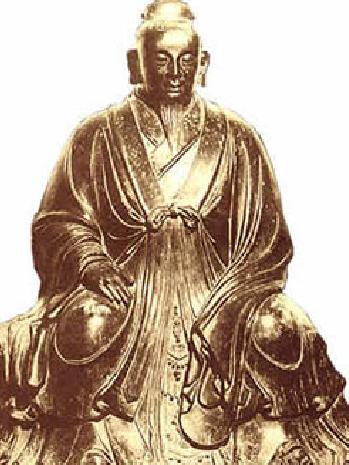SELECTION OF QUESTIONS AND ANSWERS
DECEMBER 2019 PART 2

A Bone Marrow Cleansing class in Costa Rica
Question 1
I am from Johor Bahru (Malaysia). Recently, I was diagnosed with white blood cell cancer. Since it is at pre-cancer stage (as my blood reading is just slightly above normal range), the doctor did not send me for any treatment. However, if my reading keeps increasing, then he has to start me on chemo treatment.
I did a research on Internet and found that white blood cell came from bone marrow. Therefore, I believed strongly Bone Marrow Qi Gong will help my illness.
May I know what sort of class is advisable for me to join? I have learnt qigong before.
— Corryn, Malaysia
Answer
Cancer can be overcome. We in Shaolin Wahnam have helped many people overcome cancer.
A good way to overcome cancer is to take a course on chi kung healing. I strongly recommend any one of two persons, and they are Dr Foong Tuck Meng and Sifu Wong Chun Nga. They have helped many people overcome cancer.
Dr Foong Tuck Meng is the director of Holistic Health Cultivation Centre in Kuala Lumpur. You can reach him via the internet at http://www.holistic.com.my. His phone number is 012 606 6028.
Sifu Wong Chun Nga is my eldest son. His phone number is 012 472 6618.
Question 2
Do you conduct Bone Marrow Breathing/Cleansing class?
Answer
I conduct courses on Bone Marrow Cleansing, but these courses are for healthy people.
I don't treat cancer nowadays, though more than 20 years ago I was awarded "Qigong Master of the Year" at the 2nd World Qigong Conference for my work in helping patients overcome cancer. The two persons I have suggested are my disciples and honestly are the two best persons I know who have helped many patients overcome or prevent cancer.
Practicing qigong is one of the best things you will have ever done. Not only you can prevent cancer, but you will also have good health, vitality, longevity, peak performance and spiritual joys irrespective of religion. Not many people know this fact because genuine qigong is very rare today, and most people just practice gentle physical exercise using genuine qigong forms. What other people practice is their business and their right, and I have no interest to convince them, but I just want to state the truth.
Alternatively, you can attend my Intensive Chi Kung Course which runs only for a few days and ranges from fresh beginners to a master's level. You can view my website for details. If you are interested to attend, please apply to my secretary.
Personally I prefer you to take a chi kung healing course with Dr Foong or with Sifu Wong Chun Nga, who specialize in cancer treatment. Cancer is considered an incurable disease, and white blood cell cancer is very deadly. But you have a very good chance of preventing the disease.

When you train the Horse-Riding Stance, you are training "jing"
Question 3
I am a little confused by this term Jing.
— Sifu Mark Hattnet, Shaolin Wahnam Ireland
Answer
“Jing” is a tricky word, and is often misunderstood in English. A common misunderstanding of “jing” by most people not in our school is “sperm”. This misunderstanding is due to the fact that English and Chinese are different languages.
In kungfu we often mention triple cultivation, i.e. cultivation of "jing", "qi" (or "chi" in English) and "shen", translated by me as “physical”, “energy” and “spirit”. This is very high level kungfu. Most kungfu practitioners today only practice at the physical level, and they generously exchange blows in sparring.
“Jing” here means “physical”. Being physical can be infinitesimally small or at the normal level of the body. For lack of a better term, I would use “sub-atomic particle” for the infinitesimally small. I believe I am the only one using this translation.
Eastern philosophers believe that the smallest particle, so small that one cannot divide it further, is called “jing”. It is so small that we cannot see it with our naked eyes.
“Jing” can also refer to the physical body, which we can see. Hence, in kungfu if we just perform kungfu sets, we are training “jing”.
Question 4
Jing as I know is one of the three internal harmonies (Jing, Chi and Shen) which describes the microscopic structure.
Answer
The Chinese mind is holistic. The microscopic structure is not just "jing". It also includes "qi" and "shen", which are energy and spirit.

Bodhidharma is honoured as the First Patriarch of the Shaolin arts
Question 5
Now there is also the Jing that is stored in the kidneys that give us our lifespan. This Jing is prenatal, given to us by our parents and postnatal Jing which we accumulate from good diet, rest and Chi Kung training.
When we grow in age our body uses this Jing until all the postnatal is gone and then we begin to use the prenatal. Once the Jing is gone then our physical body dies.
Answer
As "jing" is “physical”, the physical body remains although there is no life in a person. In Chinese term, when a person dies, it is referred to as “duan qi”, which literally means “broken energy”, i.e. the energy flow is broken. Nevertheless, the “shen”, or spirit, lives on.
Pre-natal "jing" is stored in the kidney, which is also the first organ to develop. Roughly I would call this pre-natal "jing" the DNA of the person. We cannot change this pre-natal "jing". A Caucasian, for example, will always remain a Caucasian.
The consolation is that we use only a small proportion of this pre-natal "jing". If one can increase his IQ from 110 to 115, he becomes a gifted person. But he can tremendously improve his post-natal "jing". Practicing "qigong" (spelt as “chi kung” in English) is an excellent way.
Here we are talking about "jing" as “physical”, like when we mention "jing", "qi", "shen" in triple cultivation. But in internal arts, "jing" can be translated as “essence”.
There is a popular saying in kungfu which reads as follows: “nei lian jing shen qi, wai lian ken gu be”, which is “internally train essence, spirit and energy, and externally train muscles, bones and skin”. If you train breathing and meditation, you train internally; if you hit a sandbag or stretch your legs, you train externally.
Thus, "jing" can be translated as “physical” and as “essence”. As mentioned earlier, English and Chinese are different languages. Not only there are no conjugation and no spelling in Chinese, many words in Chinese cannot be translated into English without loosing their meaning or causing difficulty. "Jing" is one of them.
Sometimes I translate "jing" as “essence” and sometimes as “elegance”, depending on situations where my translation can bring out its best meaning. When you practice your Horse-Riding Stance to develop internal force, you involve "jing", and here I translate the word as “essence”. When you change techniques, either externally or internally, you also involve "jing", and here I translate it as “elegance”.
It is also helpful to remember that here we are talking about "jing" in isolation. Both "qi" and "shen" are also involved, including in triple cultivation and in internal training. Generally, Western mind is analytical, whereas Eastern mind is holistic.
Question 6
Are there two different types of Jing?
- Microscopic essence
- One stored in the kidneys
Are they interrelated?
Answer
There is only one form of “jing”, but it can manifest very differently. Besides being microscopic essence and "jing" stored in the kidneys, there are also many other different manifestations of "jing". The examples of triple cultivation and of internal training are some of these manifestations.
The microscopic essence and the one stored in the kidneys are interrelated. They are physical, though they are too small to be seen with the naked eyes, or even too small to be seen by a powerful microscope. "Jing" is different from "qi" and "shen".
"Jing" is physical; it has form. But unless it is manifested in its macro level, it is too small to be seen. "Qi" is energy, it has no form, though you may see its manifestations, like a person full of vitality. "Shen" is spirit, and it also has no form but you may also see its manifestations, like a person of high spirit.

Zhang San Feng is honoured as the First Patriarch of the internal arts
Question 7
Barry and I are curiously investigating the links between the teachings of Buddha, Bodhidharma, Zhang San Feng and yourself. We are interested how these teachings can be understood and used practically, in an everyday sense, and help people live a meaningful and rewarding life, here and now.
Often, when people speak about the teachings of Buddha and the sutras, the emphasis is on spiritual awakening or enlightenment. Your focus for Shaolin Wahnam is living an enriching life now. This is an extremely helpful distinction, and something that Barry and myself continue to appreciate more and more.
— Sifu Tim Franklin, Shaolin Wahnam UK
Answer
Thank you for your implied compliments of comparing the teachings of the Buddha, Bodhidharma and Zhang San Feng, with my teaching. I really do not deserve the compliments. The Buddha, Bodhidharma and Zhang San Feng are the greatest of teachers. My teaching is really nothing compared to theirs.
One aspect, which you mentioned, is clearly distinguishable. The teachings of the Buddha, Bodhidharma and Zhang San Feng are spiritual and transcendental. My teaching is down-to-earth and phenomenal.
The Buddha, Bodhidharma and Zhang San Feng never meant to be religious. Their teachings can benefit people of any religion or of no religion.
My teaching is to use kungfu or chi kung, or both of them, to enrich our lives here and now. Kungfu and chi kung give us good health, vitality, longevity, peak performance and spiritual joys.
Question 8
Though Bodhidharma emphasized the need to go to the essential meaning than merely reading scriptures, he also valued scriptural knowledge. In fact, Bodhidharma held Sutras in high esteem. Particularly he held that Mahayana Lankavatara Sutra contains the essential teachings of the instantaneous realization tradition of Mahayana. When Bodhidharma made Huike his Dharma successor, along with his robe and bowl he passed on a copy of the scripture of Lankavatara Sutra.
Answer
It is well known that Bodhidharma asked his students to burn their books, forgetting the fact that he valued sutras greatly. At that time his students were focusing on the words of the sutra, so he asked them to burn their books so that they could focus on practicing what was taught in the sutras.
A sutra is a direct recording of the Buddha’s own words. Sutras of course have been translated into many languages. When a person recites a sutra, besides learning the teaching of the Buddha, he maintains the Buddha’s words, thus keeping the Buddha’s teaching alive.
It is a common misconception that a sutra teaches religion, and sings the praises of the Buddha. Far from it. A sutra addresses questions what quantum physics, the latest science, is doing now, like mind and reality.
Question 9
What is your understanding of the Mahayana Lankavatara Sutra and how Bodhidharma used this practically?
Answer
There are three traditions of Buddhism, namely Mahayana Buddhism, Vajrayana Buddhism and Theravada Buddhism. It is worthwhile to note that Buddhism is not a religion as most Westerners conceptualize it to be. The gist of Buddhism as taught by the Buddha is to avoid evil, do good, and cultivate the mind. Hence, a dedicated follower of any religion is actually a Buddhist.
The most important teaching of the Lankavatara Sutra is that the only reality is the mind. All phenomena, i.e. all entities we see, like people and cars, mountains and stars, are actually empty and illusory. It is indeed amazing that the Buddha taught this concept many centuries before modern science is now doing.
This concept is of utmost important in Zen, of which Bodhidharma is the founder. Bodhidharma used this concept practically in his teaching at the Shaolin Monastery. As reality is mind-only and all phenomenal things are the creation of thoughts, a Zen practitioner clears his mind of all thoughts. When he succeeds in clearing his mind of all thoughts, he attains Enlightenment.
LINKS
Selected Reading
- Qigong: a Cure for Cancer and Chronic, Degenerative Diseases? A Global Interest
- Legend of Hui Ke Receiving Bodhidharma's Bone Marrow
- Intensive Chi Kung Course 2-8 Dec 2019
- These Shaolin Arts are Legendary
- Mesa Verde of Cororado
